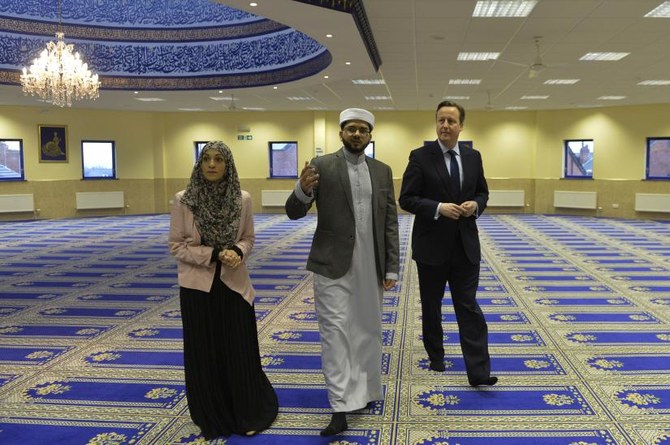LONDON: One of Britain’s leading imams has urged British Muslims to exert caution and continue to observe coronavirus disease (COVID-19) restrictions on personal contact and indoor gatherings during Eid celebrations.
Qari Asim, chairman of the Mosques and Imams National Advisory Board, said it would be “excruciatingly painful” to celebrate Eid without gathering in numbers and embracing loved ones — but that everyone should “take that extra step” to keep people safe before restrictions are lifted.
Thursday marks the end of the second Ramadan Muslims in Britain have spent adhering to restrictions on personal contact and large gatherings — both of which are hallmarks of traditional Ramadan and Eid celebrations.
Asim said: “This Eid will be very different in the sense that we will not be able to greet each other in the traditional way of embracing each other, hugging and handshaking with each other.
“But I’m really hopeful that next Eid we will be able to be with each other and embrace each other and share a meal with our extended family and friends.”
He added: “It’s excruciatingly painful because the easing of restrictions is taking place next week when we will be able to hug each other and we will be able to embrace each other.
“We just have to take that one extra step to get us through this pandemic and make sure that we do not drop the ball before the restrictions are completely eased.”
On May 17, Britain will see a raft of pandemic-related restrictions to social life relaxed — including a cap on the number of worshippers allowed into mosques and other places of worship.
Asim said: “It’s been extremely challenging to follow the restrictions that have been in place but people have made incredible sacrifices and the Muslim community has strictly followed the guidelines given by the government.”
Instead of the traditional shared iftar meal, mosques in the UK have chosen to share food with vulnerable members of their local communities.
His own mosque, Asim said, has handed out more than 7,000 food parcels in the local area throughout Ramadan.




























